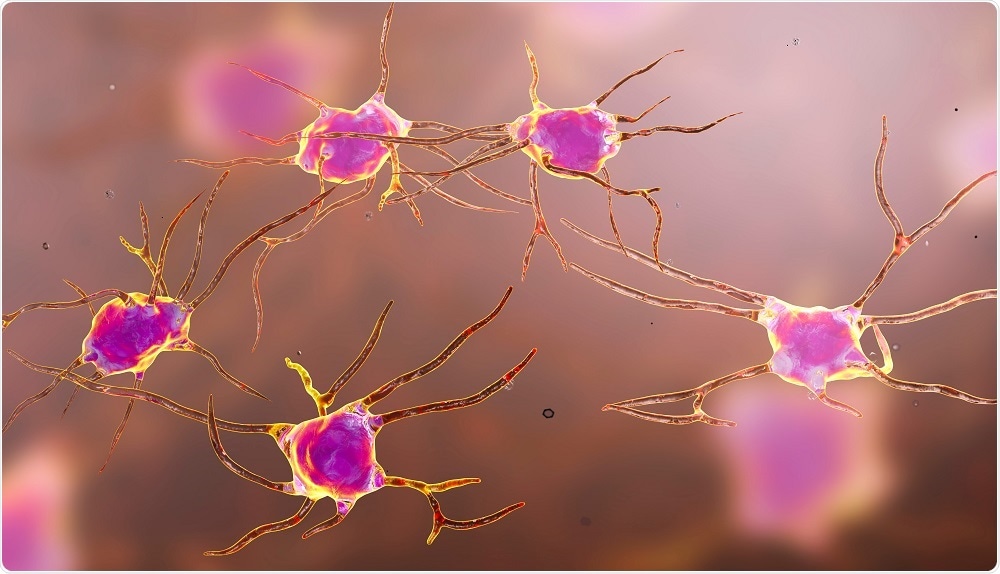Researchers from the University of Texas Southwestern Medical Center have discovered how nerve cells recruit corrupted proteins that then corrupt other normal proteins within the cell, leading to neurodegenerative diseases such as Alzheimer’s and Parkinson’s.
 Image Credit: Kateryna Kon / Shutterstock
Image Credit: Kateryna Kon / Shutterstock
Uncovering the details of how these proteins spread between cells could lead to the development of therapies to prevent disease progression.
In Alzheimer’s and Parkinson’s, the proteins tau, alpha-synuclein and amyloid-beta misfold, aggregate and then trigger healthy proteins to misfold and aggregate.
In 2013, Marc Diamond and colleagues found out that, for these corrupted proteins to enter cells and induce this misfolding, they bind to a cell surface protein called heparan sulfate proteoglycan (HSPG), which triggers the cell to invite them inside.
In the current study, the team investigated this process further, asking whether the binding is specific and whether it differs between amyloid-beta and tau, which are associated with Alzheimer’s, and alpha-synuclein, which is associated with Parkinson’s.
HSPGs can differ in size and structure; they can display different patterns of sugars that have different patterns of sulfate moieties.
The researchers looked at how the binding and cellular uptake of alpha-synuclein, amyloid-beta and tau were affected based on these different patterns.
The team found that misfolded tau could only be taken into cells via an HSPG with a very specific pattern of sulfate moieties, whereas amyloid-beta and alpha-synuclein were more flexible in which patterns could induce their uptake.
Study supervisor Barbara Stopschinski also identified the enzymes within cells that were responsible for particular HSPG sulfation patterns. Removal of these enzymes resulted in failed uptake of misfolded tau, presumably because the sugar and sulfation patterns were no longer specific to tau.
Diamond says there is something very remarkable about how efficiently a cell will take up these aggregates, bring them inside and use them to make more:
This knowledge has important implications for our understanding how neurodegenerative diseases get worse over time. Because we have identified specific enzymes that can be inhibited to block this process, this could lead to new therapies.”
Marc Diamond
Source:
https://www.eurekalert.org/pub_releases/2018-07/asfb-tss071318.php